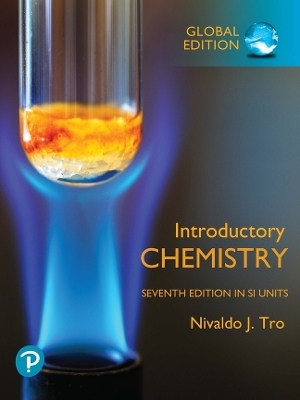
Explosive Boiling of Superheated Cryogenic Liquids
Wiley-VCH Verlag GmbH (Hersteller)
978-3-527-61066-2 (ISBN)
- Keine Verlagsinformationen verfügbar
- Artikel merken
The monograph is devoted to the description of the kinetics of spontaneous boiling of superheated liquefied gases and their solutions. Experimental results are given on the temperature of accessible superheating, the limits of tensile strength of liquids due to processes of cavitation and the rates of nucleation of classical and quantum liquids. The kinetics of evolution of the gas phase is studied in detail for solutions of cryogenic liquids and gas saturated fluids. The properties of the critical clusters (bubbles of critical sizes) of the newly evolving gas phase are analyzed for initial states near the equilibrium coexistence curves of liquid and gas, for states near the limits of accessible superheating and for initial states near the respective spinodal curves. Finally, processes of explosive boiling of cryogenic liquids are considered occurring as the result of outflow processes and intensive interactions with high temperature liquid samples.
Vladimir G. Baidakov studied physics and completed his PhD-thesis at the Ural Institute of Technology in Ekaterinburg, Russia. Since 1973, he is working at the Institute of Thermal Physics of the Russian Academy of Sciences also in Ekaterinburg, in recent years as a Vice-Director for Research and presently as the Director of this institute and the Head of the Laboratory of Cryogenics and Energetics. Prof. Baidakov's work focuses on experimental and theoretical investigations of the kinetics of first-order phase transitions, in particular, on the investigation of the kinetics of boiling, the analysis of bulk and surface properties of fluids in thermodynamically stable and metastable states, the investigation of the properties of bubbles of critical sizes determining the rate of bubble formation. The results of the work of V.G. Baidakov and his coworkers are outlined in 6 monographs and 125 journal publications. In acknowledgment of his results, in 1999 he was awarded with the Russian State Prize in Science and Technology.
Foreword.Preface.1 Introduction.2 Equilibrium, Stability, and Metastability.2.1 Types of Equilibria: Stability Criteria.2.2 Boundary of Essential Instability.2.3 Elements of Statistical Theory.2.4 Phase Stability Against Finite Perturbations.2.5 Critical Heterophase Fluctuations.2.6 Relaxation Processes in Metastable Phases.2.7 Dynamics of Heterophase Fluctuations.2.8 Kinetic Nucleation Theory (Multiparameter Version).2.9 Approximations and Limitations of Classical Nucleation Theory.2.10 Nucleation at a High Degree of Metastability.2.11 Nucleation Bypassing the Saddle Point.2.12 Some Comments on Nucleation Theory.3 Attainable Superheating of One-Component Liquids.3.1 Two Approaches to the Determination of theWork of Formation of a Critical Bubble.3.2 Boiling-Up Kinetics of Superheated Liquids.3.3 Elements of the Stochastic Theory of Nucleation.3.4 Experimental Procedures in the Analysis of Boiling in Superheated Liquids.3.5 Quasistatic Methods of Investigating Limiting Superheatings of Liquids.3.6 Dynamic Methods of Investigating Explosive Boiling-Up of Liquids.3.7 Results of Experiments on Classical Liquids.3.8 Superheating of Quantum Liquids.3.9 Surface Tension of Vapor Nuclei.3.10 Cavitation Strength of Cryogenic Liquids.3.11 Attainable Superheating of Liquid Argon at Negative Pressures.3.12 Initiated Nucleation.3.13 Heterogeneous Nucleation.4 Nucleation in Solutions of Liquefied Gases.4.1 Critical Nucleus and the Work of its Formation.4.2 Theory of Nucleation in Binary Solutions.4.3 Attainable Superheating of Solutions of Hydrocarbons.4.4 Methods of Experimentation on Solutions of Cryogenic Liquids.4.5 Solutions with Complete Solubility of the Components.4.6 Solutions with Partial Solubility of the Components.4.7 Equation of State and Boundaries of Thermodynamic Stability of Solutions.4.8 Properties of Critical Bubbles in Binary Solutions.4.9 Comparison of Theory and Experiment for Binary Solutions.4.10 Kinetics and Thermodynamics of Nucleation in Three-Component Solutions.4.11 Attainable Superheatings of Ternary Solutions of Cryogenic Liquids.5 Nucleation in Highly Correlated Systems.5.1 Introduction.5.2 Critical Configuration and its Stability.5.3 Steady-State Nucleation.5.4 Peculiarities of New Phase Formation in the Critical Region.5.5 Experimental Investigations of Nucleation in the Vicinity of Critical and Tricritical Points.5.6 Comparison of Theory and Experiment.5.7 Nucleation in the Vicinity of a Spinodal Curve.5.8 Theory of Spinodal Decomposition.5.9 Experimental Studies of Spinodal Decomposition.6 Nucleation Kinetics Near the Absolute Zero of Temperature.6.1 Quantum Tunneling of Nuclei.6.2 Limiting Supersaturations of 4He-3He-Solutions.6.3 Formation of Quantum Vortices in Superfluid Helium.6.4 Quantum Nucleation Near the Boundary of Essential Instability.6.5 Quantum Cavitation in Helium.6.6 Some Other Problems of Phase Metastability.7 Explosive Boiling-Up of Cryogenic Liquids.7.1 Superheating in Outflow Processes.7.2 Vapor Explosion at the Interface of Two Different Liquids.List of Symbols.References.Index.
| Verlagsort | Weinheim |
|---|---|
| Sprache | englisch |
| Maße | 170 x 240 mm |
| Gewicht | 826 g |
| Themenwelt | Naturwissenschaften ► Chemie |
| Naturwissenschaften ► Physik / Astronomie | |
| Technik ► Maschinenbau | |
| ISBN-10 | 3-527-61066-9 / 3527610669 |
| ISBN-13 | 978-3-527-61066-2 / 9783527610662 |
| Zustand | Neuware |
| Haben Sie eine Frage zum Produkt? |
aus dem Bereich


